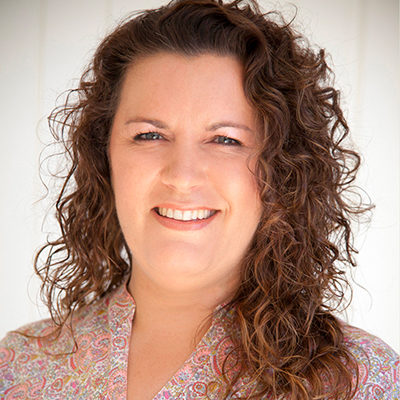
Karen Smith
Regional Winner | Productivity category
Perth, WA
Karen Smith is the National Operations Manager at Seed Shield and a 2020 Growth Awards Regional Winner in the Productivity category. While Karen was nominated for the Community & People category, through the judging process it was clear her contributions to agriculture, rural and regional Australia more closely aligns with our Productivity category. Read on to learn more about Karen.
What’s the one thing you have done in your career you are most proud of?
The number one thing I am proud of is my ability to form and maintain really good, healthy working relationships with people. This includes growers we service, staff, leaders in the industry and corporates. The reason strong relationships are so important is because I believe every business transaction and every farm transaction involves people. Good business is all about the relationships and preserving them. My role in forming those relationships is not just to be there for the good times – I want to be part of the solution if there is a problem. If we are talking about the company I work for, it’s being part of the biggest fleet of seed treating and grading mobile units in Australia. We have built that business to support farm enterprises in a very short period of time to be Australia-wide. I am proud to say I’ve been a part of this development.
How will you share what you learn with others in the industry?
I really enjoy social media and it is something that you can do and allow people to have access to information without spending any money. I use it as a platform to share what I have learnt, whether that be about a product or other things that may benefit a farming business. I also send out a newsletter once a year where we can share exciting news, information or any new services that we offer. Yet one of the best ways I’ve found to share information is to talk to people individually. I make a point of ringing every one of our 1,000 clients each year and share any information that I have that is relevant to their business.
What do you see as your biggest opportunity in the next 12 months?
It really came as a surprise to be nominated for the Syngenta Growth Awards and it will provide me with a massive opportunity to learn. That in turn presents an opportunity for the business. But there is also a huge opportunity for the business in the next 12 months and we are expecting a steep growth curve. We have become part of the Nutrien Ag Solutions group and this will give us more exposure Australia-wide. That is on top of the organic growth the business has seen year-on-year, ranging from 5-20 per cent annually. From what we are hearing firsthand, we still have more growth to come.
What is the biggest barrier to achieving success in the next 12 months?
COVID-19 has certainly presented some challenges and we expect it will continue to in the next 12 months. For me and the business, it has been challenging trying to deal with border issues and travel restrictions, which will certainly continue to be a barrier to success. We have staff that need to travel across borders, and I like to build business relationships around the world so clearly that has been thwarted. But we are making it work, with phone conferences and Microsoft Teams and the like. I think it has been a barrier in some ways, but we have found the means to keep the communication strong.
What is the biggest challenge Australian Ag has to overcome in the next 10 years?
The city-country divide or the metro-regional divide and the lack of understanding of where food comes from is the biggest issue for agriculture. The farming industry is misunderstood, and problems arise when there is a lack of understanding why we do, what we do. Even 20 years ago, the understanding of the role of agriculture would have been much stronger. I could list climate change or another five or six issues as challenges, but the divide has to be at the top of the list.
I moved to the outskirts of Perth seven years ago and was told that Australian farmers are really irresponsible. I had to ask why and then explain that the use of chemicals has stewardship attached to it, and that it’s naïve to think that chemicals can’t be used if food production is to exist. Perhaps agriculture needs to tell that story that we do take stewardship seriously.